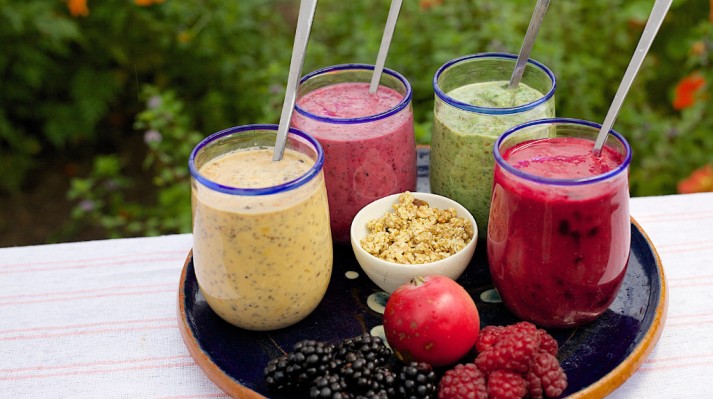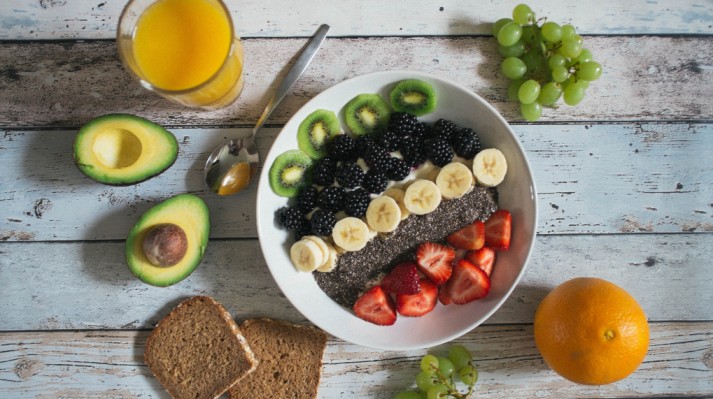Many individuals prefer to make dietary changes to maintain cardiovascular health while reducing the need for medication. Cholesterol, which is provided by the liver as well as found in certain foods, is fat-like and is required for several life processes. However, excessive levels of LDL (low-density lipoprotein) or ‘bad’ cholesterol could result in the deposition of fatty substances within blood vessels, raising the likelihood of heart disease and even a stroke.
The good news is that with some changes in diet, you can reduce your LDL cholesterol levels and increase your HDL cholesterol levels, which is beneficial in removing LDL from circulatory blood. Get your customized diet from a cardiac nutritionist or dietician
This article offers well-structured guidance towards techniques and methods of accomplishing the objective of this study, which is to create a heart-friendly diet to lower cholesterol levels, increasing cardiovascular fitness.
Cholesterol and Diet
The first thing that has to be understood is that cholesterol is highly critical for the synthesis of hormones and the building up of cell membranes. But not all of it is good! LDL, or low-density lipoprotein, also termed bad cholesterol, is that which transports cholesterol from the liver to the arteries, where it contributes to the formation of atheromatous builds. HDL, on the other hand, is a big lipoprotein containing a high density of protein, which takes cholesterol from the tissues and arteries back to the liver for metabolism and excretion.
Diet has also been shown to have a strong influence on these cholesterol levels. Even though 70% of cholesterol in the human body is produced in the liver, such boolean variables may also increase cholesterol levels, especially those containing negative fat. In order to promote heart health, seek out natural foods that work to lower LDL and raise HDL.
How Does Diet Affect Cholesterol Levels?
Making changes to the health of one’s cholesterol can be accomplished through dietary changes. For example, soluble fibre attaches to the dietary cholesterol molecules in the intestines, and blockage is a digestion process that does not allow them to enter the bloodstream. Soluble fiber contains oats, beans and various types of fruit that are effective in reducing LDL carbohydrates as well. Additionally, eating a diet plan for high cholesterol, which includes olives, avocados, and nuts, can help increase the amount of HDL cholesterol and, therefore, reduce the risk of clogged arteries.
This will lead to improved cholesterol naturally, and if you avoid unhealthy foods that raise cholesterol, cholesterol will be better in the future.
Benefits of a Cholesterol-Lowering Diet
A cholesterol-lowering diet can significantly impact your overall health and well-being. Here are some key benefits:
Promoting Heart Health
People who have a diet in which the focus is geared towards low cholesterol do run less risk of getting a serious condition like heart disease or stroke. Achieving better blood flow and a lower chance of having blockages in the arteries is possible by simply eating food that will reduce bad cholesterol and help the arteries. When cholesterol levels are improved, blood pressure may also be better.
Natural Cholesterol Management
Dietary changes reduce the amount of cholesterol-lowering drugs that are often associated with side effects such as liver damage or muscle aching. Changes in appetite are also more long-lasting, healthier over time, and, in addition, contribute to better health and nutrition as well.
Best Foods to Lower Cholesterol
Incorporating specific foods into your diet can help lower cholesterol levels and improve your heart health. Here are some of the best food choices to lower your cholesterol level.
Foods Rich in Soluble Fiber
LDL cholesterol is lowered by soluble fibre since it binds with cholesterol during digestion. Oats, beans, lentils, apples and berries are among those fruits and vegetables that have a large amount of soluble fibre. Once these nutrients are introduced into daily meals, a period of bad cholesterol will be notably decreased.
Healthy Fats for Cholesterol Reduction
It is important to consume foods that contain unsaturated fats, such as olive oil, avocado and nuts; these raise good cholesterol (HDL) levels while lowering bad cholesterol (LDL). These types of fats, especially when combined with saturated fats in the diet, assist in the balance of cholesterol levels in the body and in enhancing the health of the heart.
Foods to Avoid for Managing Cholesterol
When managing cholesterol levels, it’s essential to avoid certain foods that can raise LDL (bad) cholesterol and negatively impact heart health. We have curated a list of foods to limit or avoid:
Saturated and Trans Fats
High LDL cholesterol levels can typically occur due to the consumption of fried dishes, processed foods, and fatty meats. Lowering the consumption of these foods, however, can aid in the prevention of plaque formation that clogs arteries, which in turn minimizes the chances of heart attacks or strokes.
Refined Carbohydrates and Sugars
Refined carbohydrates such as white bread, pies, and sweet snacks also bring about weight gain, which in turn can lead to an increase in cholesterol levels. These types of foods also tend to raise the triglyceride content in the blood, making the management of cholesterol even harder and increasing further the risk of heart disease.
Creating a Cholesterol-Lowering Meal Plan
A well-structured meal plan can help lower cholesterol levels and promote heart health. Here’s a sample one-week meal plan focusing on cholesterol-lowering foods.
Designing a Balanced Meal Plan
When formulating strategies for meal plans aimed at reducing cholesterol levels, it is very critical to incorporate more vegetables, fruits, whole grains and good fats. Always remember that half the plate should be of fruits and vegetables, only a quarter with only whole grains, and the remaining part either healthy fat or lean protein. Such daily consumption of LDL-lowering foods, such as oats, fish, or nuts, ensures nutrition is consistent while not overly increasing cholesterol levels.
Incorporating Exercise for Heart Health
Aerobic or cardio activities can help raise the levels of HDL cholesterol and manage one’s weight, which would, in turn, control the cholesterol levels. As a goal, try to do moderate aerobic exercises like walking, swimming, or cycling for thirty minutes most days of the week to get a better diet and cardiac fitness.
Note: It is worth considering that the use of certain foods for the modulation of diet-induced medical factors such as cholesterol can enhance the overall cardiovascular health of individuals without the requirement for medications. Incorporating those eight methods will, in the long run, improve cardiovascular health and do wonders for overall well-being when combined with dietary methods.
Choose Qua Nutrition Dieticians and Reduce your Cholesterol
QUA Nutrition is a team of dietician experts who help provide personalized diet plans for individuals looking for a healthy lifestyle and to stay fit. At Qua Nutrition, our expert dieticians specialize in creating personalized nutrition plans designed to help you manage and reduce cholesterol levels effectively. We can help you with personalized assessments, meal planning support, guidance on healthy food choices, and more. If you are someone who is facing lifestyle diseases like high cholesterol, then get in touch with us and customize your plan according to what your body needs. Contact us today!









